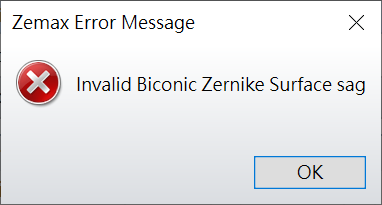Hello,
I have a question about NSC by Python program optimization.
The program must iteratively run the local optimization defined by Zemax.
However, after running some local optimizations, the optimization becomes very slow.
How to speed up the optimization of Zemax NSC through Python programs?
Question
How to speed up the optimization of Zemax NSC through Python programs
Enter your E-mail address. We'll send you an e-mail with instructions to reset your password.




